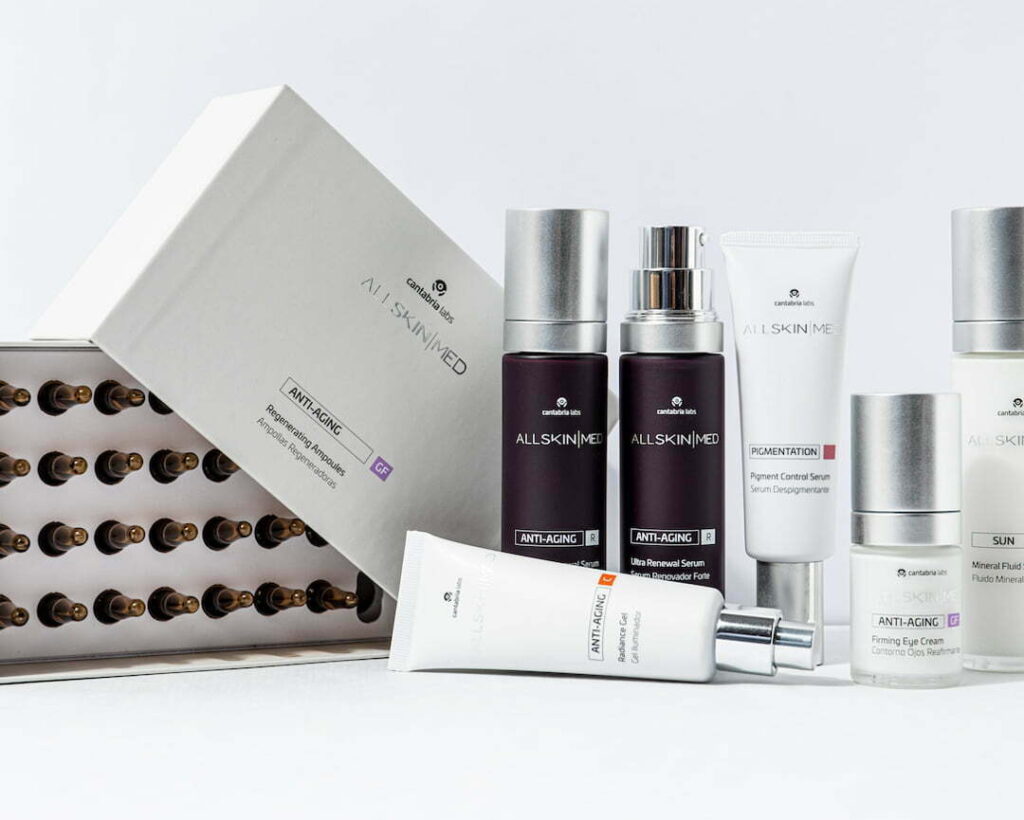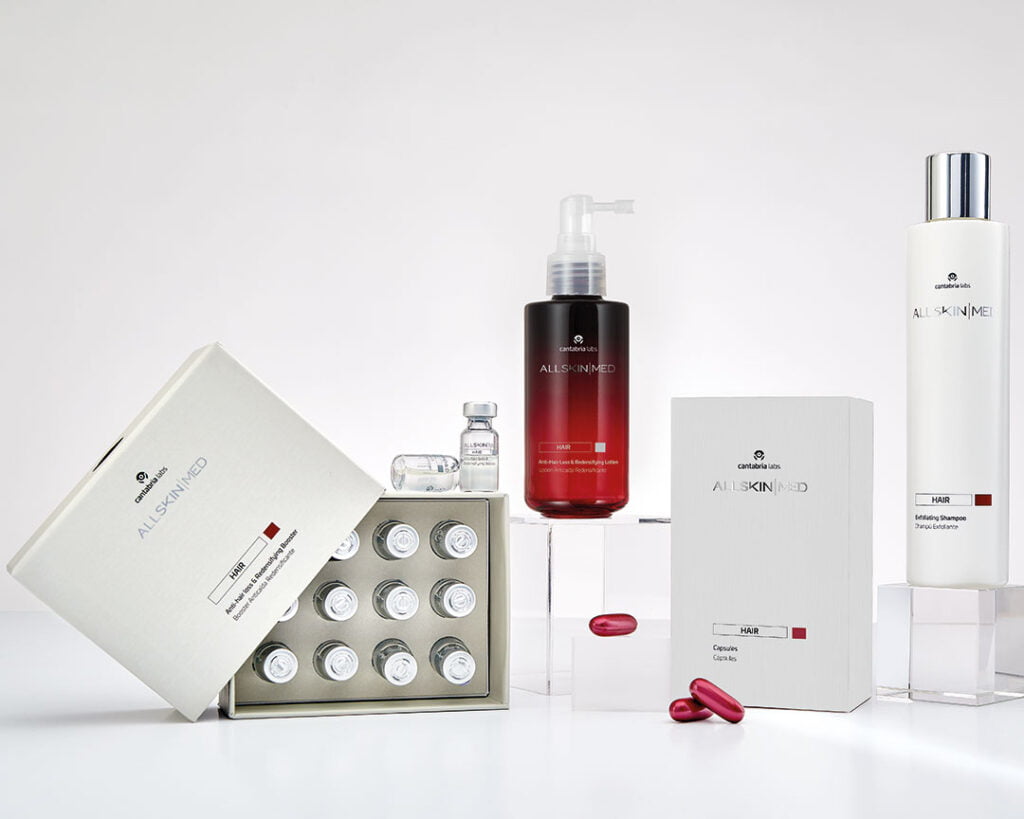Dermatological skincare solutions
for your clients skin concerns
Dehydrated skin is lacking in moisture and appears as dry skin all over the face. It occurs when the protective upper layer of the skin (stratum corneum) lacks moisture. This is commonly a result of using skincare products containing harsh or skin sensitising ingredients that disturb the skin’s barrier. It can also be a result of using the wrong products for a particular skin type, leading to an imbalance.
The sun gives off ultraviolet (UV) rays which damages skin and causes sunburn. Sun damage exacerbates skin’s natural ageing process, impairs skin health and causes visual changes such as thickening of the skin and pigmentation. All of these skin concerns can leave clients feeling less confident with their appearance and looking for solutions to help them combat these signs.
As we age, skin loses its elasticity, fine lines and wrinkles appear and skin loses its radiance. These common signs are all an inevitable part of ageing and can be exacerbated by lack of sun protection and exposure to UV rays.
One of the most common signs of ageing appears on our faces in the form of fine lines and wrinkles. These occur as the production of collagen and elastin decreases. These lines are an inevitable part of ageing but products are available to help reduce their appearance and prevent them from becoming worse in the future.
Skin elasticity refers to the skin’s ability to stretch and bounce back. It happens as a result of degeneration of skin tissue due to ageing and other factors. As we age, the production of elastin and collagen in our skin slows down, resulting in decreased elasticity.
Pores are the tiny openings at the top of the hair follicles that cover our whole bodies. They play a huge role in keeping skin healthy by allowing sweat and oil to reach the skin’s surface. However, some people experience enlarged pores on their face, particularly around their nose and cheeks. Enlarged pores are commonly exacerbated by sun damage and the natural ageing process as the skin thickens and loses its elasticity.
Hyperpigmentation is one of the most common skin complaints and appears as darkened areas of skin. The biggest causes of hyperpigmentation are sun exposure and inflammation which increase melanin production and the risk of increased skin pigmentation.
Treatment should identify the cause of hyperpigmentation to manage the over production of melanin and lift the pigmentation at its surface.
Uneven skin tone is one of the most common skin complaints and refers to skin discolouration and includes sun spots and hyperpigmentation. The biggest causes of uneven skin tone are sun exposure and pollution which can increase melanin production and cause darker spots or patches to appear on the skin.
Before treating uneven skin tone, it’s important to identify the cause so that the over production of melanin can be managed and lift the pigmentation at its surface.
Uneven skin texture is caused by excess dead skin cells which build up on the surface of the skin. As a result, areas of the skin can be left feeling rough or bumpy to the touch and can make skin appear dull.
In addition, sun damage exacerbates the skin’s natural ageing process, impairs skin health and causes visual changes such as thickening of the skin and a rough skin texture. Natural skin exfoliation slows down as a result of ageing which means dead skin cells cling to the skin’s surface and leave a dull/rough appearance.
Sensitive skin can be reactive to external triggers such as the weather and certain skincare products or ingredients. This can make it difficult for clients to find the right products for their skin that do not cause flare ups and for you to provide highly effective products that will not trigger their sensitivity and make their skin feel uncomfortable.
Many clinic treatments stimulate the body’s repair system through a controlled injury process which means the skin may require some extra care to help it recover and to help clients achieve the best results from their treatment.
Post treatment skin can be left inflamed or injured due to microscopic breaks in the skin which require a gentle skin care regime.
Hair, like skin, undergoes significant changes over time. It becomes less dense, thinner, loses volume, and can eventually shed. Androgenic alopecia, the most common cause of hair loss, affects 85% of men and 40% of women by the age of 50.


